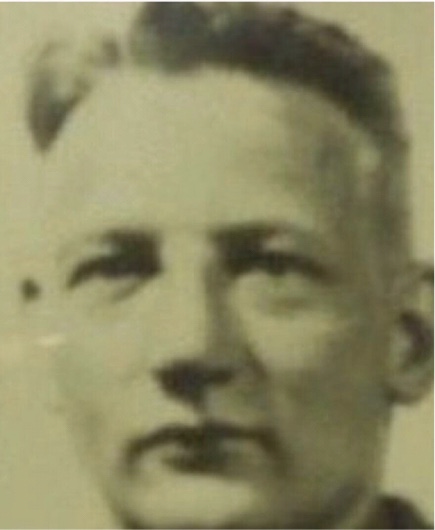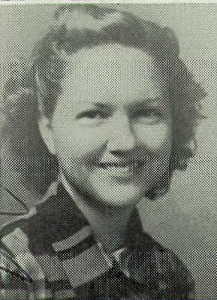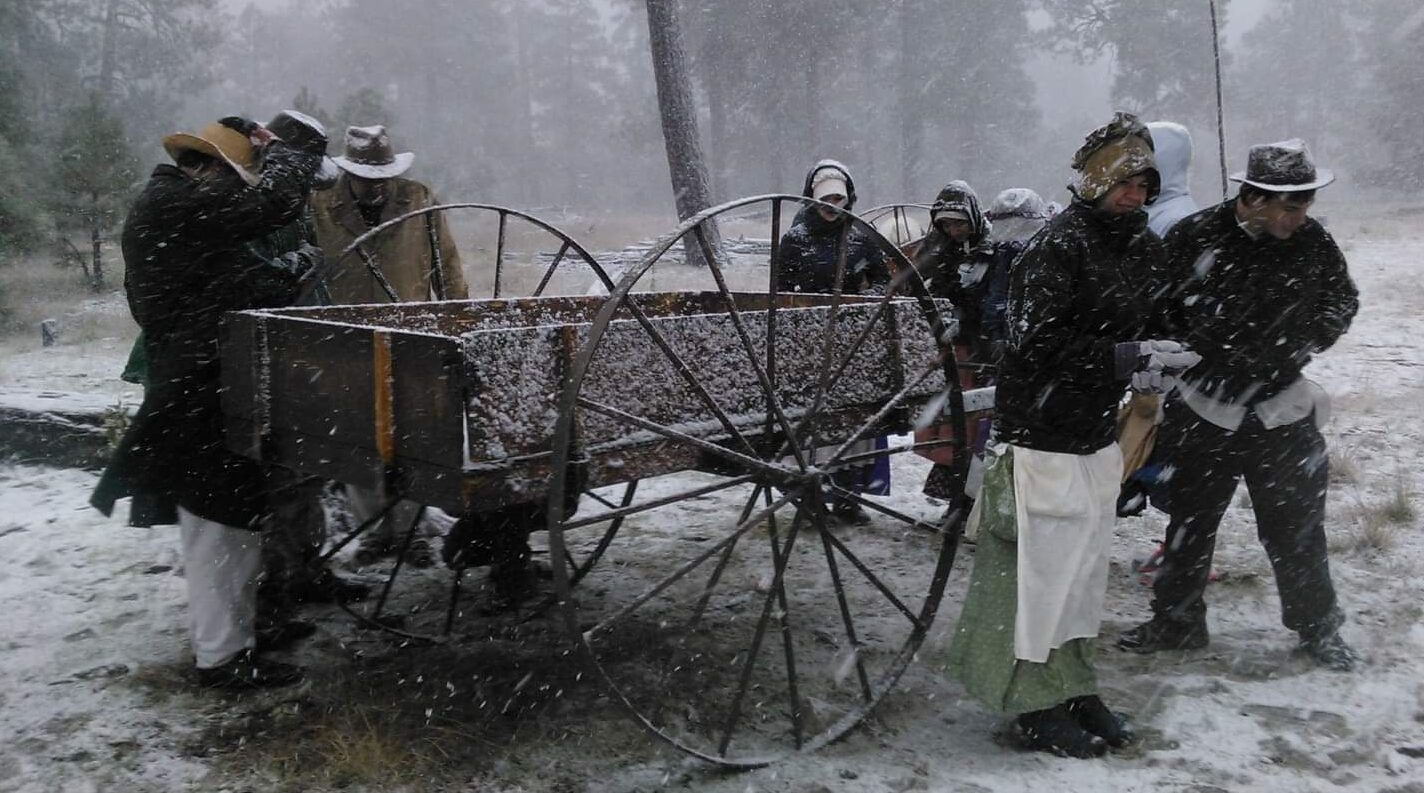My Grandfather the Spy

My grandfather, Ralph Veldon Naylor, wasn’t an actual spy that I’m aware of during WWII, but he was involved in counter intelligence. He spent time during the war behind enemy lines disguised at time as a German Soldier and probably as a Russia Soldier, if that makes him a spy then I guess he was. The story I tell comes from his life story as first recorded by him, then rewritten by his daughter Pauline and then his son Doug given at his funeral by Doug, a copy of which I have.
It was September 1, 1939, Nazi Germany under Adolf Hitler invaded Poland. On September 3, 1939, France and the United Kingdom declared war on Germany. In 1941 Germany led, the European Axis as it was called, in the invasion of the Soviet Union. In 1941 Japan who had been at war with the Republic of China, attacked Pearl Harbor on the 7 December, 1941. The European Axis, in a show of solidarity declared war on the United States that same year.
The story picks up on December 20, 1942. Grandpa had just been released as a missionary for the Church of Jesus Christ of Latter-day Saints. He was serving in the Eastern States Mission in New York City. He says, “The war had built up its momentum and train travel was difficult. I took five days to reach Bowie, Arizona, where my mother, [Effie Bingham] and Uncle Leo Bingham met me for my trip to Safford.”

He was only in Safford about 3 weeks before he was drafted into the Army. During that 3 weeks, he met Reva Mae McBride at a church dance who later became his wife. He says, “Reva fell for me, line and sinker.” I believe it was more he fell for her and he was hooked.

He left for Camp MacArthur in California on the 10 January 1943 for basic training. He spent two rainy weeks there before shipping out to Camp Roberts, also in California. According him Camp Roberts was an infantry camp, isolated, drab and depressing
It was at Camp Roberts that he took a test and passed to go to ASTP, Army Specialized Training Program, school for interpreters. He was assigned to the University of Idaho in Moscow, Idaho we he was to learn Spanish. It was during that first week of school that the War Department needed Russian interpreters and he applied to lender the lend-lease program with Russia and was 1 of 21 accepted to study Russian. He said, “We studied for twelve hours a day for nine months.”
During the shcool year he and Reva had been corrisponding. Reva had moved to Ogden, Utah to work in the Ogden Army Depot. Veldon had gone to Salt Lake City in October of 1943 to meet up with her and have dinner after attending a church conference. While in Salt Lake City he ran into and old family friend from Safford, AZ, Spencer W Kimball who insisted that he come to his home for an early dinnner. He thought he could do both, he never made it to dinner that night with Reva.
To make it up to her, he took her out the next night, and in the back seat of his friend Newell Layton’s car, he gave her a ring and asked her to be his Celestial companion.”WOW”, what a makeup that was.
Veldon, returned to Moscow, Idaho and in March of 1944 he graduate. Reva came up for the graduation ceremony with her mother June McBride and it was at this time they got married.
After graduating he was assigned to Camp Adair, near Corvallis, Oregon where he worked in the personnel department. Reva came up and they spent a few weeks together, after which she returned to Safford, Arizona. After Reva left, he was transferred to Fort Leonard Wood in Missouri. It was here that he applied for Counter Intelligence School in the Army. He was immediately accepted and after being investigated by the F.B.I and the office of Naval Intelligence he was transferred to Camp Ritchie, in Maryland for training.
It was here at Camp Richie in the mountains North of Washington D.C., were he trained for 3 months in intelligence matters. He says. “We were trained in how to shoot weapon from all over the world and were familiar with all Russian and German gun activities, et. We were taught how to kill in many easy ways, so that a man would not make a sound, and how to communicate with many languages other than English and Russian. We were taught the mannerism and customs of different cultures such as how to eat a piece of of pie that is placed in front of you. We also had training in almost every conceivable intelligence factor.”
After three months of intense training he was one of several sent to the University of Pennsylvania for concentrated course in German language and customs. It was after this training that he could speak German good enough to interrogate most Germans with whom he might come in contact with. It was in about October 1944 that he left by air for Scotland.

From Scotland he and others worked their way down into London England. It was during this time that the Germans were actively sending the “Buzzbomb” into London. He says, “One landed a few hundred feet from where we stayed and many buildings collapsed from the impact. I shook for an hour.”
From London, he and others left for Paris France and arrived a short time after the city fell to Allied forces. It was here he said, “We occupied a small hotel in Paris for about two weeks near the Arc de Triumph, getting instruction for entering Germany behind the lines.”
Here I take a side trip for a minute to tell a funny story as told by him. “I remember a small restaurant [in a hotel] with a sign in the window saying: ‘English spoken, American Understood.’ The landlady of the hotel asked me if I would like to take a “douche” before I went to bed, I said, ‘Not particularly, but if it is the custom, I will. I later found out that “douche” in French means a shower bath.”
They left Paris in two jeeps and headed towards Germany, with a large amount of equipment and a native companion, their orders as he say were to “Go find Adolf Hitler!” We crossed the Rhine River at Mainz. We went North from Mainz and settled in Wiesbanden, Germany, in a small hotel for a few days.

Note: It was during this time that “Reva, gave birth birth to our first daughter, Pauline.” It was five months after she was born that he was able to be contacted and told that he was a new father. She was born on 6 April 1945. It wouldn’t be until the end of February 1946 before he would be able to see her for the first time. He recounts when he saw her, “My heart melted.”
In his own words, “I went North into Frankfort, Germany on a Sunday morning. The City was being taken over by the United States at that time, and there bodies, fires and all types of ammunitions explosions, etc. I was wal[k]ing along the Main River and hear a group singing “Come, Come Ye Saints” out of a bombed out building. I opened the door and the group screamed. Later they said they thought I was going to kill them. I talked to them in German, told them I was a member of the Church, and we had a glorious reunion. I administered the sacrament to them. There were a few women, old men and mostly kids. “
They left Frankfurt am Main and went North to Bielef eld, Kassell and then to Halle am de Saale. He say, “In Kassell we saw a building that had a direct bomb hit and 5,000 people were killed.” In Halle, they were assigned to go into Berlin.
On the way in to Berlin, they were a bit apprehensive, as fighting was still going on. “We had many close encounters on our way into Berlin, but wound up in Berlin as one of the first to arrive.”
The agreement by the Allied Powers was to let Russians enter Berlin first and our troops stopped at the Elb River. The agreement was to let the Russians recover what items they could due to the German sacking of Stalingrad. “He says “While we were among the first to arrive, it was by agreement that [the] Russians had been the first.” An observation here and purely speculation on my part is that he was already in Berlin prior to the Russians.
He says that pior to entering Berlin, “I was assigned a Jeep, a companion that was fluent in German, given some maps and worked my way into Berlin. We [had] variouse clothes to wear that we could wear as different expeiences merited…” He says that he and his companion were picked up by the Russians for interrogations but he was able to talk his way out of trouble and released a short time later.
“We went into central Berlin looking for Hitler, evidence and other high officials had on a target list. Working our way into the City, we arrived at the Chancellery building. The bunker where Hitler spent his last hours was located just outside this building. As the troops neared Berlin, several of the high ranking officers, along with Hitler, took refuge in the bunker. There were several rooms in the bunker. Hitler and his mistress, Eva Braun lived in the back two rooms. They were married by civil authority just before they committed suicide. Hitler left orders with his staff, to take the two bodies in the courtyard and burn them. …

We did not find Hitler, but found his doctor, nurse, guard, and others around him whom i interviewed. Since I spoke fluent Russian, I was able to make a good reason for being there. They all said that Hitler and his mistress had committed suicide and had been taken into the yard where their bodies were burned. We found a dark spot where there had been a fire, saw the cans of gasoline, but found no Hitler. I was wal[k]ing in the courtyard and saw a shoe lying on the ground with the sole up. I gave it a kick, and it had a man’s foot in it, buried all but the shoe and foot. We later dug up fithy-two bodies and my assignment was to determine by examining their teeth and using Hitler’s dental chart, if any of them were Hitler. It was a difficult situation, but we did it. We later learned that the Russians had taken the bodies of Hitler and his mistress just before we arrived.”
After arriving in Berlin, he spent about one and half years there, mostly arresting and questioning high ranking Germans.

He tells of the story of finding $16 million in German money in a building. After notifying the authorities, a plane was sent from Frankfurt to pick it up. The money was found in a house in Dahlem, Berlin. From the way he tells the story the house belonged to Hjlmar Schach, head of the Rich’s bank and Hitler’s finance minister during the War.
He says, as a thank you for finding and reporting the money, all he got was a piece of paper with a thank you.
He and his companion generally worked behind German lines. In Berlin he questioned many prisoners of war. He says, “Some of the POW’s had terrible tales to relate and it is difficult to realize that some of the things were done that were unbelievable.”

He goes on to say, “Dr. Mengley … performed his genetic experimentation on many, others were dropped from hooks to land on sharp pointed objects. I say a lampshade made from human skin covered in tattoos. The base was a man’s arm from the elbow up.”

“I was one of those that set up the security for the Potsdam Conference outside of Berlin where Truman, Churchill and Stalin met at the end of the War. I got to see Stalin and the others. Stalin was about 5′ 6”, had a mustache, was immaculate in his dress and had a pocked marked face. He arrived in his car sitting in the middle back seat surrounded by five NKVD security men.”
During his time in Berlin he performed many different functions, some which were performing security checks and making arrest of top Nazis. He also documented data that would later be used in the Nuremberg trials.
“The German Secret Service had tattoos. The men wore them etched under the left arm and the women under their left breast. As I would interrogate the Germans I would say, “You’re SS.” And they would raise their arm or blouse to show me, saying “Nein, Nein.”
He says, “I picked up one inventor who invented the snorkel that permits submarines to breath under water, I started out the front door with him and the NKVS’s pulled up in front. I hustled him out the back and we exited quickly in a VW and he was flown to Paris.” He also help a photographer escape.
One his duties was interrogating German POW’s who were released. He tells the story, “One inmate had a man’s finger that he was carrying around in case he got really hungry.”
He say one inmate had a story that was interesting. “The German Commandant call all of the inmates together on Christmas Eve. He said as a gesture of good will, each inmate would receive a change of underwear. John you change with Franz, Franz, you trade with Hans, etc until all had a change of underwear.” I would say that wasn’t much of gesture of good will.

At the Dacau Concentration Camp he says, “I was called upon to to give a Priesthood blessing. There were no American LDS soldiers present, so I went into the Concentration Camp and asked for any inmates who might be LDS. Three stepped forward and I interrogated them and took one with me to help give the blessing to the American officer and then returned him to th e Concentration Camp.” I can’t imagine how difficult that must has been for both my grandfather an the inmate to return to the concentration camp after performing a Priesthood blessing.
He established an office in Steglitz, Berlin. “One day a woman came into my office to report a final act of the Gestapo. She said there were bodies in the subway that had been drowned by the Gestapo as a final act of defiance. The subway was closed, the Spree River was bombed, and the area flooded. The people were the old, children, sick and many in the trains that had been wounded. We arranged to have the area pumped out and the bodies removed. There were above 3,000 bodies, some bloated to withing three times their normal size.”
Another assignment he had in Berlin was to protect Omar Bradley, Army General and General Patton. “Patton was a character, with two guns strapped to his side. He was a mean man.”
In February of 1946, he was sent home, back to the United States. He left Berlin for Antwerp Belgium. From there he caught a boat back to the United State via the North route. There sleeping quarters were below the water line and large pieces of ice would bang against the side of the ship. “It was quite a ride.” The first stop was New York, then onto Fort Monmouth, New Jersey and then by train to Fort Bliss, Texas and then home. At home Reva me him at the bus depot and ran along the side before the bus stopped, shouting, “I want my own home!” A few days later she had that home.
A final word. War is difficult on all those involved, it can bring out the worst in people or the best in people. A man or woman that goes to war never comes home the same as when they left. I’ve been told that my grandfather was not the same man when he came home as when he left. All I know is the grandfather after the war, a joker, hardworker a man of God and a man to look up to. The man who made me do the Indian Fire Dance, but that is a story for another day.
